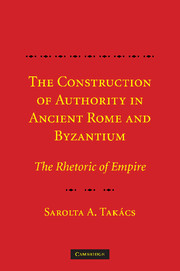Introduction
Published online by Cambridge University Press: 15 October 2009
Summary
Two dictators shaped my family's life: Adolf Hitler and Josef Stalin. Their respective tyrannies, as well as their immeasurable brutality in the name of ideologies, had an impact even on those of us born long after they held sway over their nations. My father, who experienced the atrocities of World War II as a young boy and teenager, went on to fight the Stalinist regime of his beloved Hungary only to end up in the worst prison imaginable. He was one of the lucky ones. Imprisoned for life, he was released under Imre Nagy's general amnesty. After the failed uprising of 1956, he made his way to Switzerland, which became his new home. It is no surprise, then, that politics and history were topics our family discussed often and most intensively. In particular, we explored how well-employed rhetoric influenced public opinion; how rhetoric of the kind employed by Hitler and Stalin can shape public opinion and construct authority.
Later, as a graduate student, I had the opportunity to study with the Byzantinist Paul Speck (1928-2003). The horrors of World War II and the Nazi ideology that led to the abandonment of humanity gave Speck a particular insight into Byzantine history and texts. He taught me to look for, and isolate, powers and processes that transformed events into historical memory.
- Type
- Chapter
- Information
- The Construction of Authority in Ancient Rome and ByzantiumThe Rhetoric of Empire, pp. xvii - xxivPublisher: Cambridge University PressPrint publication year: 2008



